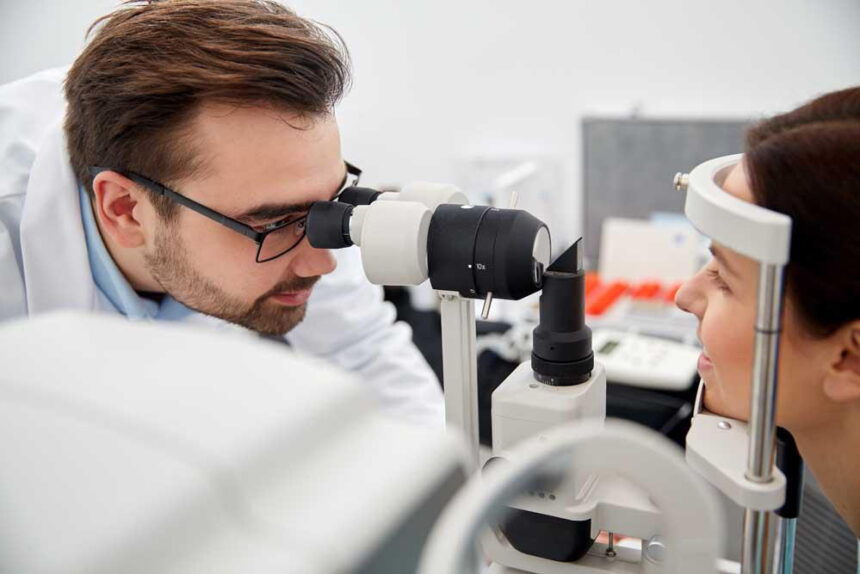An eye doctor plays a significant role in preventive care by detecting vision problems and eye diseases before they cause significant damage. Through comprehensive eye exams, they can identify early signs of conditions such as glaucoma and macular degeneration. Here are the roles of an eye specialist in preventive eye care:
Detecting Eye Conditions Early
Eye doctors use specialized equipment and techniques to spot eye diseases before you notice symptoms. Many serious eye conditions develop slowly and cause no pain or vision changes in their early stages. Glaucoma, for instance, gradually damages your optic nerve without obvious warning signs. An eye physician checks your eye pressure and examines your optic nerve during routine visits to catch this condition early.
Macular degeneration affects the central part of your retina responsible for sharp, detailed vision. Your eye care specialist looks for early signs of this condition through dilated eye exams and specialized imaging. When detected early, treatments help slow its progression and preserve your central vision.
Monitoring Vision Changes
Regular eye exams enable your eye doctor to monitor how your vision changes over time as you age. These comprehensive evaluations document your eye health history and establish baselines for future comparisons and assessments. Your eye care specialist maintains detailed records of your eye pressure, visual acuity, and overall eye health.
Children’s eyes undergo rapid changes as they grow and develop. Pediatric eye exams help identify vision problems that may affect learning and development. Your eye physician checks for conditions like lazy eye, crossed eyes, and refractive errors that respond well to early treatment.
Adult eyes also undergo changes throughout life. Your ophthalmologist tracks these natural aging changes and adjusts your vision correction accordingly. Regular monitoring also helps detect when prescription changes are needed for optimal vision.
Detecting Systemic Health Issues
Your eyes provide a window into your overall health. An eye doctor examines blood vessels, nerves, and tissues in your eyes that reflect conditions affecting your entire body. Diabetes often shows its first signs in the retina through diabetic retinopathy. Your eye care specialist looks for signs of bleeding, swelling, and abnormal blood vessel growth that may indicate diabetes complications.
High blood pressure also appears in your eye’s blood vessels. Your ophthalmologist observes changes in retinal arteries and veins that suggest hypertension. These findings may prompt referral to your primary care physician for blood pressure management. Other systemic conditions, such as autoimmune diseases, blood disorders, and neurological problems, may also show signs during comprehensive eye examinations.
Educating Patients on Eye Health Maintenance
Eye doctors provide valuable guidance on protecting your vision between visits. Your eye care specialist discusses dietary choices that benefit your eyes and may recommend specific supplements when appropriate. Your ophthalmologist explains the value of quality sunglasses and wide-brimmed hats for outdoor activities. This education proves helpful for people who spend a significant amount of time outdoors for work or recreation.
Digital eye strain affects many people who use computers and mobile devices extensively. Your eye physician teaches proper viewing distances, lighting techniques to reduce eye fatigue. These strategies help maintain comfort during extended screen use.
See an Eye Doctor Today
Preventive eye care forms the foundation of lifelong vision health. Eye doctors detect problems early, identify systemic health issues, and educate patients on maintaining healthy eyes. Regular comprehensive eye exams allow your eye care specialist to address concerns before they become vision-threatening conditions. Schedule a comprehensive eye examination with an eye doctor to protect your vision.





